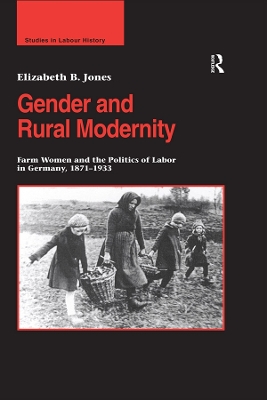By the end of the First World War, women's labor was viewed by contemporary observers as fundamental to the survival of family farms in Germany and consequently to the nation's economic and social stability. At the same time, however, the overburdening of farm women sparked increasingly acrimonious conflicts between young hired women, or Mägde, their employers, and state officials. The progressive feminization of agricultural work in Germany during the prewar decades and attempts after the war to prevent young women's flight from family farms is the focus of this new study. Concentrating principally on developments in the Kingdom, later the Freestate, of Saxony, the author highlights the ways that previously invisible historical actors -young rural women- actively shaped state policies: in disputes over work between Mägde and their employers before village magistrates; in the thorny debates over rural social welfare reform and the campaigns to professionalize farm wives and daughters; and in state officials' uneven enforcement of agricultural employment laws and their struggles to maintain the food supply during and after the First World War. The book furthermore challenges established narratives of German history that equate modernity with the industrial and the urban, instead suggesting that rural inhabitants participated actively in the broader debates and crises that defined modernity in the Imperial and Weimar eras, particularly concerning debates over individual rights versus collective national duties, the future health and prosperity of the Volk, and the meanings of Germanness.
- ISBN13 9781351934787
- Publish Date 5 December 2016 (first published 28 February 2009)
- Publish Status Active
- Publish Country GB
- Publisher Taylor & Francis Ltd
- Imprint Routledge
- Format eBook (EPUB)
- Pages 254
- Language English
